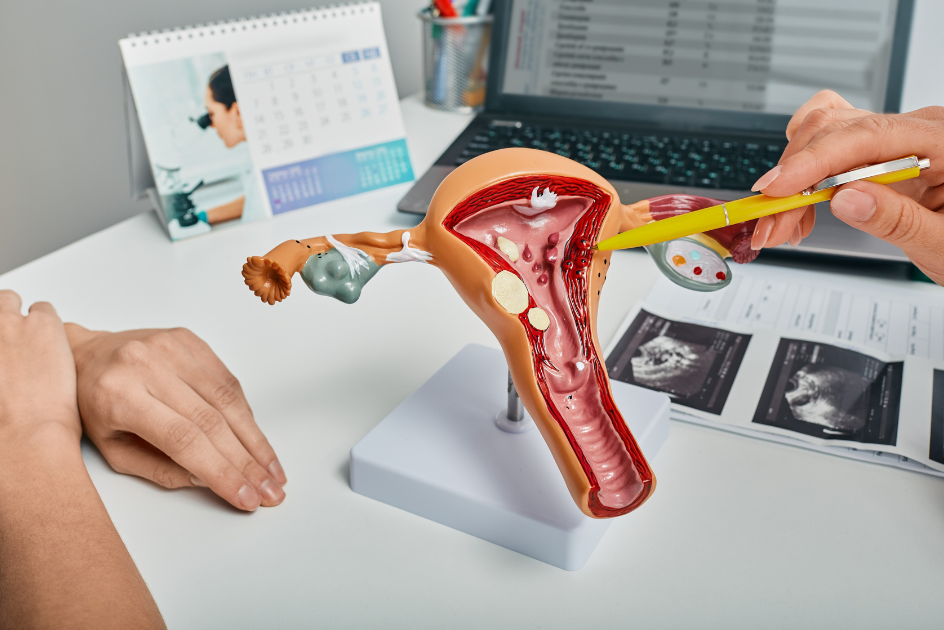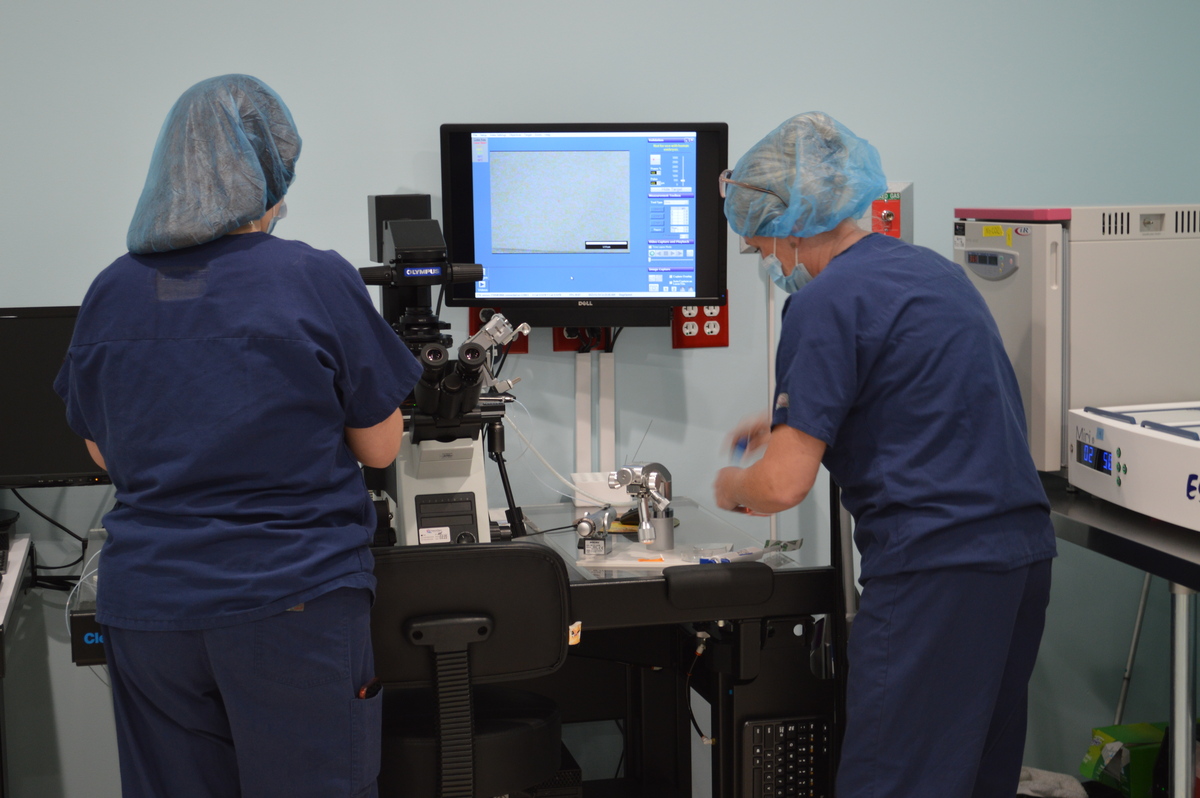What Causes Fertility Issues in Women?

Fertility issues are very common, however when they arise in our lives or the lives of our loved ones, they often come as a surprise. The number of women facing fertility issues today is much higher than what many people assume. The CDC states that today in the United States, among married women aged 15 to 49 years with no prior births, about 1 in 5 (19%) are unable to get pregnant after one year of trying. They also state that about 1 in 4 (26%) women in this group have difficulty getting pregnant or carrying a pregnancy to term.
Fertility issues can also appear in male partners. Read more about fertility issues in men here!
Fortunately, many fertility issues can be treated and overcome using modern treatments, and women can carry a pregnancy to term. But first, you need to know more about your diagnosis. If you have recently been diagnosed with fertility issues or suspect you have them, this blog post is for you.
We will discuss some common reasons for fertility issues in women, like PCOS, and a few other factors that contribute to fertility issues. Keep reading to learn about female fertility issues and some ways you can pursue treatment for each.

Common Reasons for Fertility Issues in Women
Below is a brief rundown of some of the most common reasons for fertility issues in women.
Endometriosis
A common reason for fertility issues is endometriosis, a condition where endometrial tissue grows outside the uterus or in the pelvic area. Endometriosis can be a very uncomfortable or even painful condition, and it can also cause issues for women wanting to conceive. Fortunately, in many cases endometriosis is manageable through medication.
Scared Reproductive Tissue
Structural issues like blocked fallopian tubes or uterine fibroids can also interfere with conception. Blocked tubes can prevent the sperm and egg from meeting, while fibroids are non-cancerous growths that can affect the uterine lining.
Thyroid Disorders
Thyroid disorders can also negatively impact fertility in women. Thyroids are responsible for releasing the chemical that tells our body to release our eggs from our ovaries. If this process is interrupted, it can cause us to have difficulties releasing eggs.
Lifestyle Choices
Lifestyle choices can play a significant role in fertility issues. Smoking and excessive alcohol consumption have been linked to decreased fertility. Poor diet, lacking essential nutrients, and excessive weight gain or loss, can disrupt ovulation and menstrual cycles, making it harder to conceive.
Age-Related Factors
Age-related decline in fertility is a common factor as women's reproductive abilities naturally decrease with age. During menopause, women run out of viable eggs to release. New eggs cannot be produced by the human body, and so unless a woman has eggs that have been frozen, she will be unable to reproduce using her genetic material.
For women experiencing symptoms of fertility issues, it is essential to consult with a reproductive endocrinologist, like Dr. Chin, so they can determine the underlying cause and explore treatment options.
In the next section, we will take a closer look at hormone imbalances and PCOS.
Hormonal Imbalances
Hormones play a crucial role in fertility as they regulate various processes involved in reproduction. In women, hormones like follicle-stimulating hormone (FSH), luteinizing hormone (LH), estrogen, and progesterone are vital for the development and release of eggs from the ovaries, as well as preparing the uterus for pregnancy. In men, hormones like testosterone are essential for sperm production and quality.
Hormonal imbalances can negatively impact fertility. Age is a significant factor, as hormone levels naturally decline with age in both men and women. In women, declining hormone levels can lead to irregular menstrual cycles, reduced egg quality, and diminished ovarian reserve, making it more challenging to conceive. In men, reduced testosterone levels can result in decreased sperm production and quality. |
Stress can also cause hormonal imbalances that affect fertility. Chronic stress can disrupt the delicate balance of hormones, leading to irregular menstrual cycles in women and decreased sperm production in men. Additionally, stress may impact the release of certain hormones, such as GnRH (gonadotropin-releasing hormone), which can affect ovulation and sperm production.
A Closer Look at PCOS
Polycystic ovary syndrome (PCOS) is one of the most common and misunderstood conditions in women that causes fertility issues. PCOS is caused by an imbalance in reproductive hormones, leading to irregular periods and difficulty conceiving. Thyroid disorders, such as hypothyroidism or hyperthyroidism, can also impact fertility by disrupting the function of reproductive hormones.
In addition to menstrual irregularities, women with PCOS may develop ovarian cysts, which are small sacs filled with fluid. These cysts can cause pelvic pain and discomfort. PCOS can also make it more challenging for women to conceive, as the hormone imbalance affects ovulation.
While PCOS cannot be cured, it can be managed effectively through various treatment approaches. Lifestyle changes, such as maintaining a healthy diet, regular exercise, and weight management, play a crucial role in managing PCOS symptoms. Medication can also be prescribed to regulate hormone levels and improve ovulation. In some cases, fertility treatments may be necessary to aid in conception.
Learn more about PCOS and its effect on the body in this blog post!
Other Factors that Contribute to Fertility Issues
Fertility issues in women can be influenced by various factors beyond lifestyle choices and age. Below are two other factors that can contribute to fertility issues in women.
Chronic Inflammation
Inflammation is another factor that can contribute to infertility. Chronic inflammation in the reproductive organs can impair the functioning of the ovaries and fallopian tubes, making it harder for sperm to reach the egg for fertilization. Inflammation can be caused by infections such as pelvic inflammatory disease or sexually transmitted infections.
Genetic Factors
Genetic factors and certain medications can affect fertility in women. Some genetic disorders, such as Turner syndrome or Fragile X syndrome, can cause ovarian dysfunction. Certain medications, such as chemotherapy drugs, radiation therapy, or long-term use of contraceptives, may have detrimental effects on fertility.

Seek Treatment for Fertility Issues at the Fertility Wellness Institute of Ohio
Even if you have been diagnosed with fertility issues, in many cases treatment is still completely possible. Many female fertility factors have treatment plans that allow women to carry a baby to term using either natural conception or assisted fertility treatment like intrauterine insemination (IUI) or in vitro fertilization (IVF).
Come to the Fertility Wellness Institute of Ohio for all your fertility treatment needs. Dr. NeeOo Chin is a board-certified reproductive endocrinologist and he has helped thousands of women and couples reach their fertility goals. He wants to help you too.
Click here to schedule an appointment with Dr. Chin now!
Follow the Fertility Wellness Institute of Ohio on Facebook, Instagram, X, and LinkedIn!

